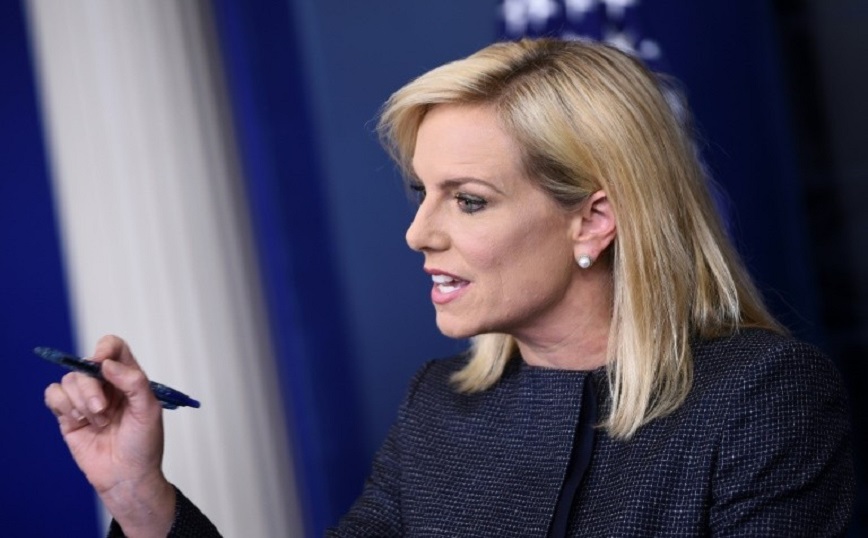Homeland Security Secretary Warns Americans of Dangers from Nation-State Rivals
The Department of Homeland Security (DHS) has spent many years since the 9/11 al-Qaeda terrorist attack focused on non-state actors. Al-Qaeda, the Taliban, Hezbollah, Hamas, and other groups were allowed to operate as political organizations in many predominately Muslim countries including Saudi Arabia, Lebanon, Yemen, Syria, Egypt, and others, according to Kristjen Nielsen

Nevertheless, our nation-state rivals are increasingly asserting themselves in ways that endanger our homeland. In fact, threats to the United States from foreign adversaries are at the highest levels since the Cold War. Countries such as China, Iran, North Korea, and Russia are willing to use all elements of national power—finance, trade, cyber, espionage, information operations, and more—to undermine the United States, and to advance their own interests.
Even in peacetime, hostile nation states are now taking the fight directly to citizens — attacking their personal electronic devices, compromising essential functions as demonstrated in a cyber attack against Ukraine’s power grid, targeting individuals directly as we saw with recent poisonings in the United Kingdom, or seeking to destabilize the heart of democracy they depend on through malicious influence campaigns. As I have said before, this is not a fair fight. Neither private companies nor citizens are equipped to oppose nation-state threats alone. So DHS must forge nationwide partnerships to protect our country and our people.
Top of mind for most Americans is the Russian interference in our 2016 elections. At President Vladimir Putin’s direction, Moscow launched a brazen, multi-faceted influence campaign to undermine public faith in our democratic process and distort our presidential election. Although no actual ballots were altered by this campaign, this was a direct attack on our democracy. We should not, cannot, and will not tolerate such attacks, nor let them happen again.
Election security was not a mission envisioned for the Department when it was created, but it is now one of my highest priorities. In the past two years, DHS has worked hand-in-hand with officials in all 50 states and the private sector to make our election infrastructure more secure than ever. We are sharing intelligence nationwide with election officials. We are forward-deploying cyber experts to help states and localities scan and secure their systems. By the midterm elections next month, our network security sensors will be deployed to areas to protect the election infrastructure for more than 90 percent of registered voters.

On Election Day, our teams will be out in full force and hosting a virtual, nationwide “situation room” to monitor activity. Our efforts will also continue well after the midterms, and we will work with our partners nationwide to make their systems and processes even more secure. Today, I am calling on every state in the Union to ensure that by the 2020 election, they have redundant, auditable election systems. The best way to do that is with a physical paper trail and effective audits so that Americans can be confident that—no matter what—their vote is counted and counted correctly.
DHS is also undertaking new efforts in partnership with the FBI, the intelligence community, and others to counter foreign influence through close industry engagement and foreign partnerships. Several weeks ago, I helped secure a commitment from our “Five Eyes” partners—Australia, Canada, New Zealand, and the United Kingdom—to collaborate more closely to block meddling in our democracies.
More broadly, I have directed a shift from a “counterterrorism” posture at DHS to a wider “counter-threats” posture to ensure we are doing everything possible to guard against nation-state interference. We are overhauling our crisis response teams and advisory boards, realigning our intelligence enterprise into new “mission centers,” and taking steps to prevent adversaries from infiltrating U.S. companies and critical industries.



